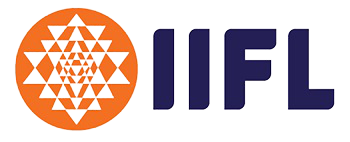MUTUAL FUNDS
What Is Mutual Fund?
A mutual fund is a professionally managed investment fund that pulls money from many investors to purchase securities. It helps you to earn consistent returns over time and
managed by an expert fund manager to diversify your risk.
Advantages Of Mutual Funds:
1. Diversification:
Mutual funds helps to diversify risk as the funds are spread across a large number of
stocks or debt paper. This reduces the risk because even if some stocks are not
doing well, other stocks would be performing well, so overall return will be
good.
2. Expert management:
Mutual funds are managed by an expert fund manager. This ensures that the benefit of
all this rigor comes to the investor.
3. Suits your financial goals:
Mutual funds offer a wide choice of asset classes. You have mutual funds that invest
in equities, debt, combination of debt & equity, gold, liquid asset etc.
This not only reduces your risk but also gives you a choice as per your needs.
4. Invest in assets of your choice:
Mutual funds also offer choice within an asset class. For example, under equity funds
you can choose from large cap funds, mid cap funds, small cap funds, sector
funds etc.
5. Systematic or one-time investment:
Mutual funds are the best fits to you long term financial plan. You can design
systematic investment plans for each unique need and peg mutual fund SIPs to
them. These are a ticket to your long term dreams and goals.
EQUITY MUTUAL FUNDS
What is Equity Mutual Funds?
Equity mutual funds are a class of mutual funds that invest majority into equity and
equity-oriented instruments. Equity funds are required to invest at least 65%
of its portfolio in equity instruments. These funds are highly risky which is
why they have the potential to offer higher returns as compared to hybrid
funds.
On the basis of market capitalization, equity funds are further classified into:- Large Cap
Equity Funds, Small Cap Equity Funds, and Mid-Cap Equity Funds.
Is Equity Fund and Equity Hybrid Fund the same?
The Equity Fund typically invests over 90% in equities and especially in stocks that meet the fund criteria (large cap, small cap, mid cap, etc.). It gives higher returns.
An Equity Hybrid Fund invests about 65-70% in equities and the rest in debt. Due to the
debt component, the Equity Hybrid Fund has lower risk than an equity fund but
also gives lower returns. Equity Hybrid Funds are also popularly called aggressive
hybrid funds.
Large Cap, Mid Cap, Small Cap?
In the past, the large cap, mid cap and small cap stocks were divided based on the market cap cut off. Post 2018, SEBI changed the definition of capitalization based on the
rankings. This is how large cap, mid cap, small cap are defined:-
Large-Cap mutual funds invest in the top 100 companies with the
largest market capitalization. They give slightly lower returns than mid cap
funds but these are stable companies with long pedigrees so the overall risk is
much lower.
Mid-Cap Mutual Funds fund invests in 101st to 250th exchange –listed companies
based on market capitalization. In comparison to large caps, they are higher on
the risk scale, but they also offer higher returns.
Small-Cap mutual fund invests in companies below the 250th
spot based on market capitalization. They are higher on risk, but also offer
higher returns.
How do you distinguish between Diversified funds, ELSS
Funds, and Index Funds?
These 3 categories may have a lot of common stocks, but there is different in investment logic to each of them, and all are equity funds.
· Diversified Equity Funds invest your funds in companies across
market capitalizations and are a combination of large-cap, mid-cap, and
small-cap companies.
· Equity-Linked Savings Scheme (ELSS) Funds
are equity funds that come with a 3 year lock-in and give you benefit of tax exemption under Section 80C of the Income Tax Act. An ELSS funds has to be an equity fund only after 3 years it is like any normal fund.
· Index Funds are passive funds in that they just try to mimic an underlying benchmark, index like the Sensex or Nifty. Their Portfolio composition is similar to the index they follow. They only focus on reducing tracking error and the costs are much lower.
THEMATIC FUNDS AND SECTORAL FUNDS:
THEMATIC FUNDS: This fund follow theme that can be a set of industries. Some of the popular themes are Commodities, Alternatives Energy, Digital etc. A commodity fund can have stocks from the oil sector, steel sector and cooper and aluminium sector.
SECTORAL FUNDS: This fund refers to a specific sector of industry group. Example of sector funds are Pharma Funds, FMCG Funds, Banking Funds, IT Funds
DIFFERENECE BETWEEN REGULAR OPTION AND DIRECT OPTION IN MUTUAL FUNDS?
Regular Option in mutual fund is when you invest through a broker, on whom you rely for advise on which funds to buy.
Direct Option in mutual fund is when you directly buy the funds from AMC, either online or offline. The advantage here is that you don’t have to pay the marketing and distribution
commissions.
HOW DO I KNOW IF EQUITY MUTUAL FUNDS ARE SUITABLE FOR ME?
Equity mutual fund is a long term investment, investing for a shot term would be risky but over a longer period the risk tends to get neutralized (say for 5 to 8 years). Equity mutual funds are mainly chosen for long term goals such as children’s education, retirement etc. So, overall you can say that investing in equity mutual funds is best suitable.
Connect with us and FREE recommendation!
Mutual Fund
Insurance
More Investments
SIP











